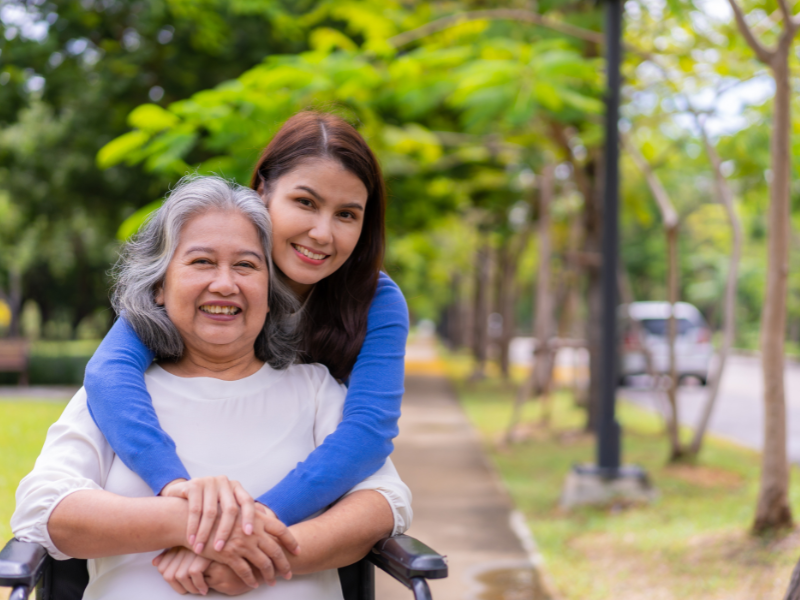Creating a safe and nurturing environment for our aging loved ones is a top priority for many of us. We want to ensure they are well taken care of, feel at home, and can reach someone should something go wrong. We also want to take steps to keep them as safe as possible for fall prevention, medication management, and more.
You can help provide a supportive atmosphere at home with these 5 tips.

1. Assess the Home
Start by assessing the home and determining what may need to be adjusted for safety purposes. Consider elements that will make it easier and safer to move about the home and allow your aging family member to remain as independent as possible.
Do some research on safety recommendations and hacks to help you identify hazards that you may need to address. Anywhere with stairs, uneven flooring, entryways, and even bathrooms are often the places that need the most attention to prevent accidents. It’s best to minimize the use of rugs or anything that might cause tripping.
You will also want to consider safety in terms of appliances, stability, and the ability to manage their own medication too. As you take note of these things, do your best not to remove the dignity of your family member. You want to help but do it with respect.
2. Make Any Necessary Modifications
You will likely need to make some minor modifications for fall prevention within the home. This can vary from home to home, but consider the at-risk areas you discovered in your assessment. Does the bathroom need grab bars? Perhaps you need to adjust walkways or hallways to better accommodate a wheelchair or a walker.
What about stairs? Are there stairs within the home? Is there the possibility of adding a ramp? With short stairways, a good steady handrail may be enough. This will simply depend on what your family member can navigate. Make it as easy as possible to move between rooms and have places to hold on to or travel safely as they move about.
3. Make it a Comfortable Home
Remember that this is their home. You want them to be comfortable and safe. They may still need a little extra help to come in from time to time. This extra health can be a home care assistance program that knows things to look for, can check on the individual, and ensure they are taking their necessary medications too.
Consider what will make them feel cozy and as though they belong. Many times, creating a comfortable home actually contributes to positive mental health and independence. It doesn’t solve everything, but they can feel the nurturing from the efforts to keep them at home.
4. Maintain Social Involvement
Your aging loved one needs to be able to continue to be social. They depend on you to stay social so make sure you include them in activities and help them get out of the house to see others. Encourage them to engage in social connections of similarly aged people and arrange fun get togethers that include them. This helps to prevent loneliness.
Related Posts
5. Be Supportive and Caring
Most of all, just be there for your loved one. Be supportive and caring. Listen to the things they want or need and give them the respect that they deserve. Open clear communication and help them when they need help or support. These are the things that will allow them to feel safe and cared for even when they are facing the challenges of aging.
There is no perfect answer to support loved ones at home, but these simple tips will certainly go a long way to help. Overall, it’s about listening, doing what you can to help, and bringing in professional home assistance to cover the gaps.




